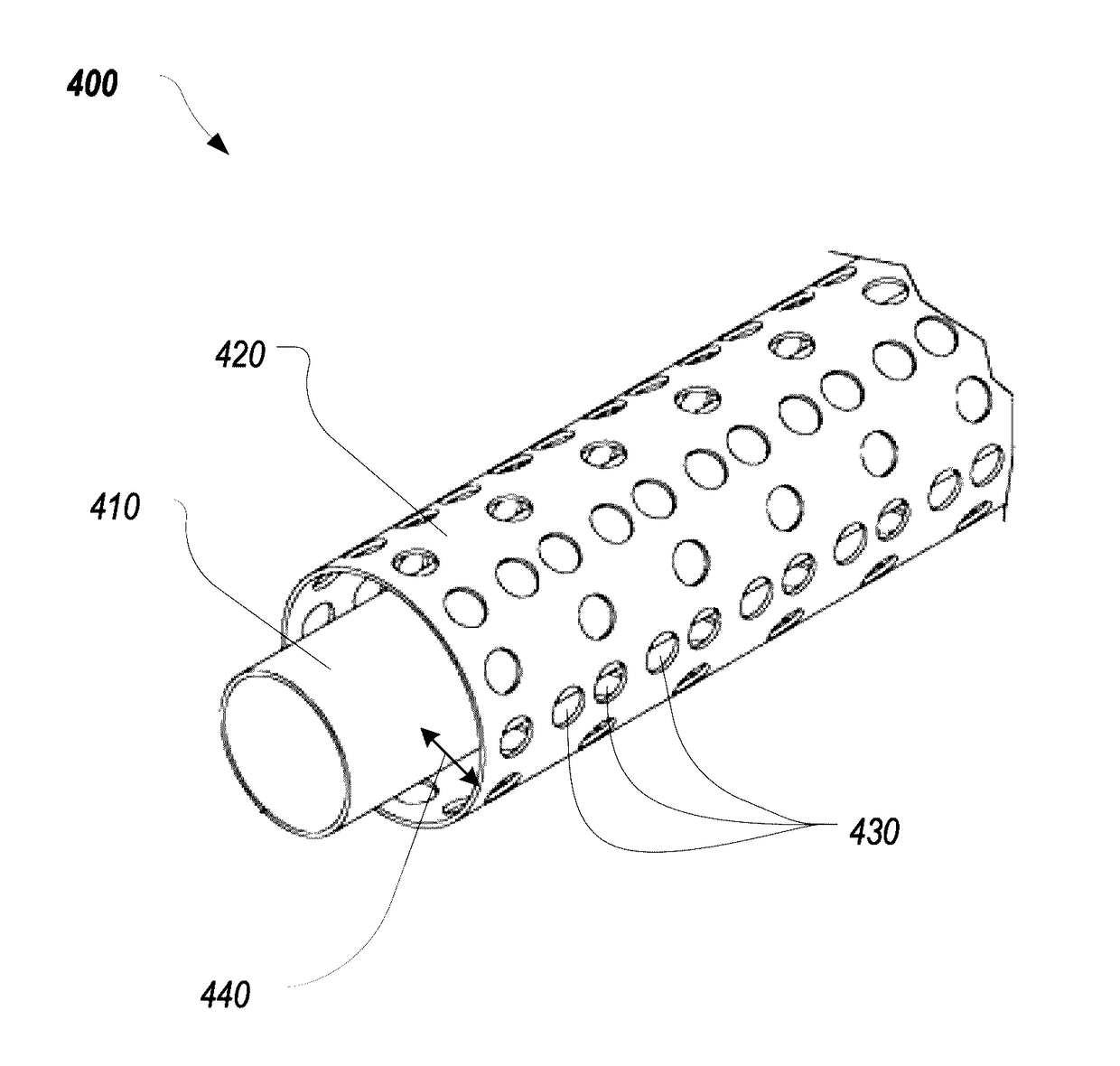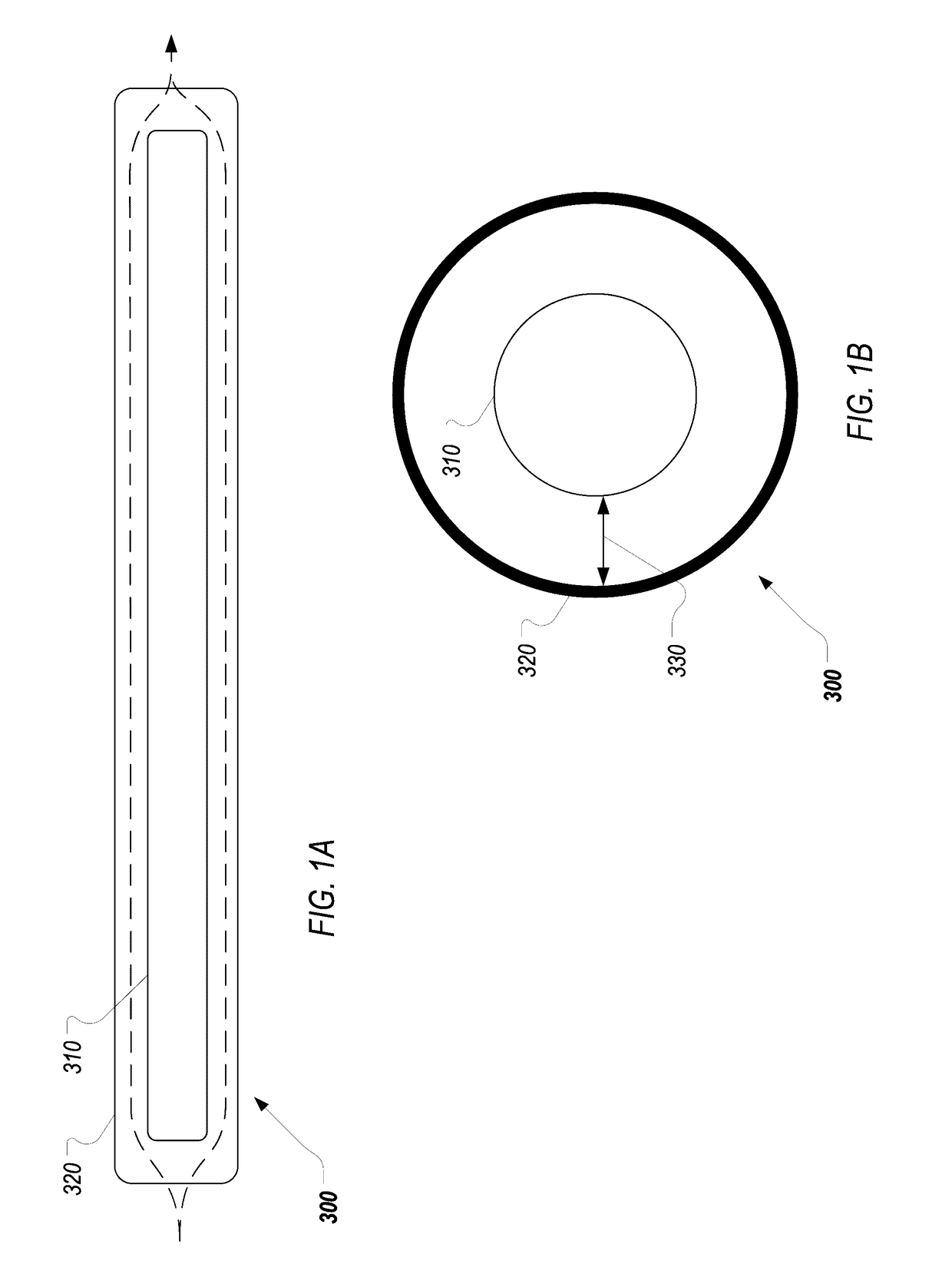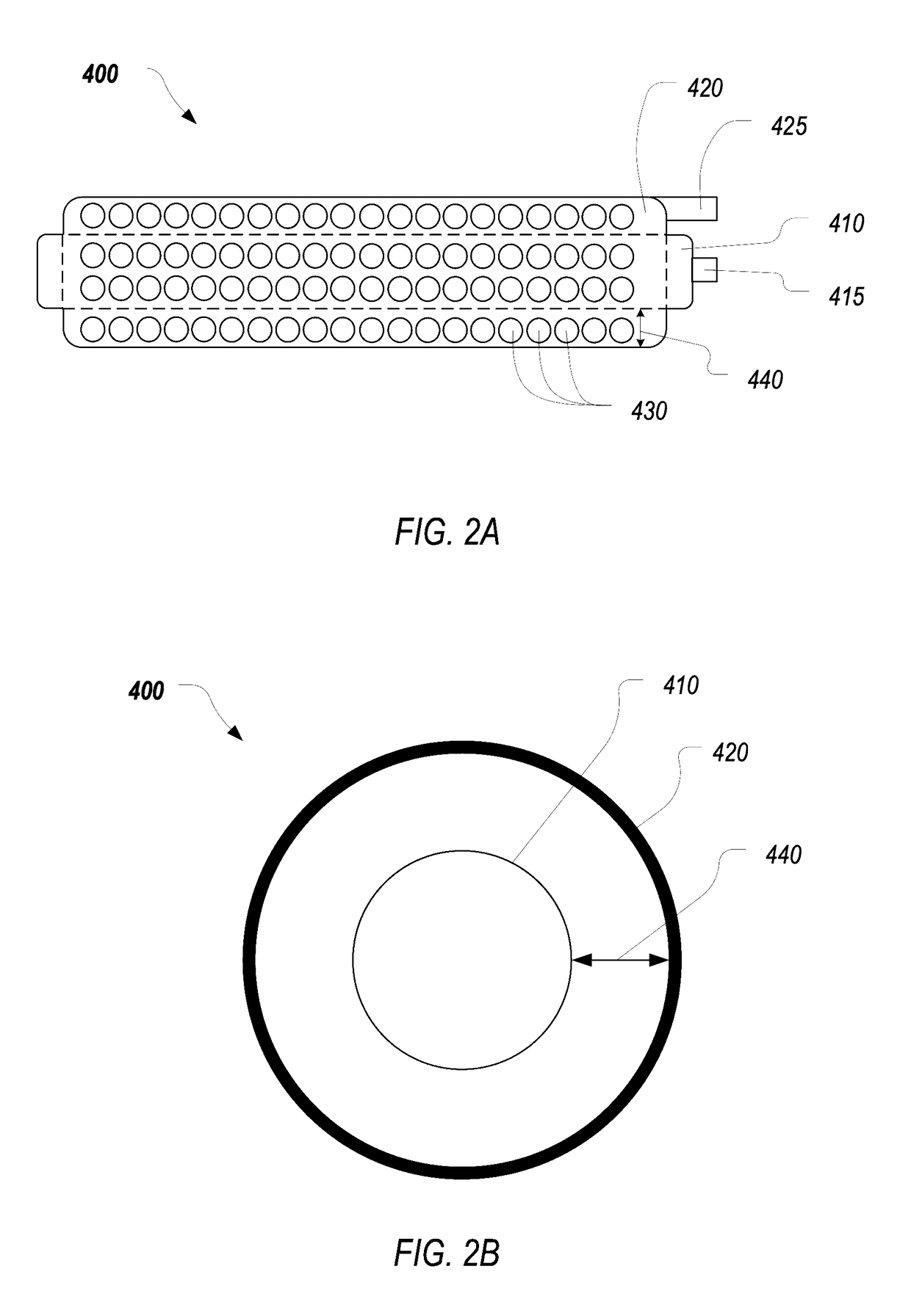Systems and methods for reduction of total organic compounds in wastewater
a technology of total organic compounds and wastewater, applied in the nature of water treatment, multi-stage water/sewage treatment, filtration, etc., can solve the problems of reducing the efficiency of wastewater treatment, and exposing humans, other mammalian species and aquatic organisms to dbps. , to achieve the effect of promoting transient cavitation, reducing the total organic compound present, and high mass transfer coefficien
- Summary
- Abstract
- Description
- Claims
- Application Information
AI Technical Summary
Benefits of technology
Problems solved by technology
Method used
Image
Examples
example 1
[0080]A test run was carried in which microalgae were harvested using pH modification and electrolysis. The test run was performed to food grade standards using a modified OriginClear harvester (OriginClear, Los Angeles, Calif.). In its unmodified form, the OriginClear harvester is configured to harvest micro-algae from growth medium using donating anodes in an electro-coagulation-flocculation system. For this study, the OriginClear harvester was modified to include an injection feature configured to raise the pH under the control of a programmable logic controller (PLC). The modified OriginClear harvester was configured to perform auto-flocculation with electrolytes to harvest microalgae as food grade products. The modified OriginClear harvester comprised a 40 gallon (150 liter) flotation tank.
[0081]The microalgae species, Nanno 3600 (strain CCMP525), was used for the study. Nanno 3600 is a high-yield rotifer feed that is a single species of the microalgae genus, Nannochloropsis, a...
example 2
[0102]Wastewater leachate, commonly known as black water, has come under new EPA standards. Several countries have implemented new rules for discharge and have funded the effort to modernize the methods and systems for handling this contaminant. The goal for this test was to reduce COD from 10,000 to 100 and Ammonia (NH4) from the mid 3,000 ppm to below 8. Current technology (DTRO membrane) is considered by the user as not effective and costly due to the high rate of replacement cartridges. This test was conducted at a city dump which discharges 2000 tons / day, and has very few amenities, is remote and cold for 6 months of the year thus limiting the use of AD as a TOC reducing systems.
[0103]Technology Platform:[0104]OriginClear® A25 modeled for algae and MMO flotation anodes for organics reduction[0105]OriginClear® Model 12 algae equipped with MMO reactors and MMO flotation anodes for Oxidation[0106]UF system[0107]R / O system
[0108]Inflow water: While there is variation on the inflow, ...
PUM
| Property | Measurement | Unit |
|---|---|---|
| pH | aaaaa | aaaaa |
| pH | aaaaa | aaaaa |
| pH | aaaaa | aaaaa |
Abstract
Description
Claims
Application Information
 Login to View More
Login to View More - R&D
- Intellectual Property
- Life Sciences
- Materials
- Tech Scout
- Unparalleled Data Quality
- Higher Quality Content
- 60% Fewer Hallucinations
Browse by: Latest US Patents, China's latest patents, Technical Efficacy Thesaurus, Application Domain, Technology Topic, Popular Technical Reports.
© 2025 PatSnap. All rights reserved.Legal|Privacy policy|Modern Slavery Act Transparency Statement|Sitemap|About US| Contact US: help@patsnap.com



